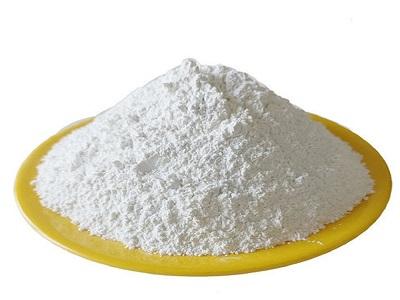Calcium Powder Prices is an essential supplement used widely across various industries, including food and beverages, pharmaceuticals, and agriculture. The price of calcium powder can fluctuate due to multiple factors such as raw material costs, production methods, and market demand. As of 2024, calcium powder prices have shown a steady trend influenced by several market dynamics. Manufacturers often determine prices based on the purity and form of calcium powder, with higher purity powders commanding a premium due to their specialized applications in pharmaceuticals and high-quality food products.
The sourcing of raw materials significantly impacts calcium powder prices. Calcium carbonate, the primary raw material, is derived from limestone, marble, and other mineral sources. The extraction and processing costs of these minerals are subject to geological availability and mining regulations, which can vary by region. For instance, stricter environmental regulations in some areas can increase mining costs, thereby raising the overall price of calcium powder. Additionally, fluctuations in fuel prices and transportation costs can also contribute to the variability in pricing, as these elements are crucial in the logistics of raw material procurement and product distribution.
Technological advancements in the production of calcium powder have also played a role in shaping its market price. Modern production techniques, such as micronization and nanotechnology, enhance the powder's properties and expand its application scope. While these technologies improve the quality and functionality of calcium powder, they also add to the production costs. Companies that invest in such advanced technologies often pass on the increased costs to consumers, resulting in higher market prices for premium-grade calcium powders.
The demand for calcium powder in various industries also drives its pricing trends. In the food and beverage industry, calcium powder is used as a dietary supplement and a fortifying agent in products such as cereals, beverages, and dairy alternatives. The rising consumer awareness about the benefits of calcium for bone health and overall wellness has spurred the demand for calcium-fortified foods, thereby influencing prices. Similarly, in the pharmaceutical industry, calcium powder is a critical ingredient in the formulation of supplements and medications. The growing prevalence of osteoporosis and other bone-related disorders has led to an increased demand for calcium supplements, further impacting the market price.
Get Real Time Prices of Calcium Powder: https://www.chemanalyst.com/Pricing-data/calcium-powder-1245
Agricultural applications of calcium powder, such as soil amendment and animal feed additives, also contribute to the demand dynamics. Calcium powder helps improve soil quality and provides essential nutrients for livestock, promoting healthier crop yields and animal growth. Seasonal agricultural activities and varying weather conditions can lead to fluctuations in demand, thereby affecting prices. For example, a higher demand for calcium-enriched fertilizers during the planting season can drive up prices temporarily.
Global trade policies and economic factors also play a crucial role in the pricing of calcium powder. Import and export tariffs, trade agreements, and currency exchange rates can all influence the cost structure of calcium powder. Countries that rely heavily on imports for their calcium powder supply may experience price volatility due to changes in international trade policies or geopolitical tensions. Additionally, the economic stability of major producing and consuming countries can impact production costs and purchasing power, respectively, leading to price adjustments in the global market.
The competitive landscape of the calcium powder market is another factor affecting prices. The presence of numerous manufacturers and suppliers creates a competitive environment that can drive price variations. Companies may adopt different pricing strategies, such as competitive pricing, premium pricing, or discounting, to capture market share and attract customers. Brand reputation, product quality, and customer service also influence consumer purchasing decisions, thereby affecting market prices.
In recent years, sustainability concerns and environmental regulations have also begun to influence calcium powder pricing. Consumers and regulatory bodies are increasingly prioritizing environmentally friendly production practices. Manufacturers adopting sustainable methods, such as reducing carbon emissions and minimizing waste, may incur higher production costs, which are often reflected in the final product price. However, these practices can also provide a competitive advantage and appeal to environmentally conscious consumers willing to pay a premium for sustainably produced calcium powder.
Overall, the price of calcium powder is shaped by a complex interplay of factors, including raw material costs, production technologies, demand across various industries, global trade policies, competitive dynamics, and sustainability considerations. As the market continues to evolve, stakeholders must stay informed about these influencing factors to navigate the pricing landscape effectively. By understanding the key drivers of calcium powder prices, businesses and consumers can make more informed decisions and anticipate market trends.
Get Real Time Prices of Calcium Powder: https://www.chemanalyst.com/Pricing-data/calcium-powder-1245
Contact Us:
ChemAnalyst
GmbH - S-01, 2.floor, Subbelrather Straße,
15a Cologne, 50823, Germany
Call: +49-221-6505-8833
Email: sales@chemanalyst.com
Website: https://www.chemanalyst.com
